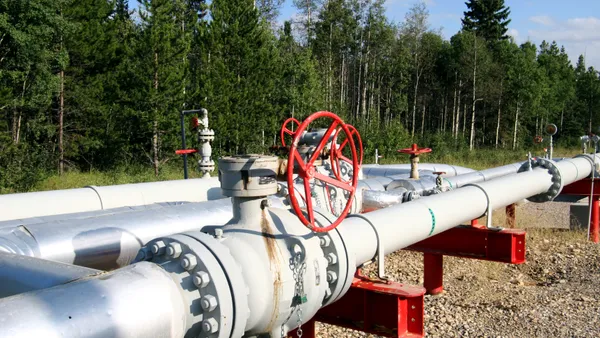Dive Brief:
-
Moody's Investors Service Tuesday lowered Tri-State Generation and Transmission Association’s credit outlook to negative, partly over concerns the wholesale cooperative utility may lose members.
-
The shift in outlook also reflects a rate settlement that cut member rates by 2% in 2021 and again in 2022. The reductions prevent Tri-State from timely recovery of higher fuel and purchase power costs, the ratings agency said.
-
“As a not-for-profit cooperative, Tri-State continues to use deferred revenue to stabilize and reduce our members’ wholesale rates, delivering immediate cost savings at a time when inflation, supply chain pressures and rising energy costs are affecting rural communities,” Duane Highley, Tri-State CEO, said in a press release.
Dive Insight:
The negative outlook for Tri-State is partly driven by the cooperative’s likely need to add debt to cover its near-term costs, according to Moody’s. It also recognizes the challenges Tri-State faces in pursuing more timely rate increases while addressing member concerns, the ratings agency said.
Tri-State’s lowered rates remain in effect until its next rate filing, which could be as soon as May 31, Moody’s said. The new rates would take effect next year, according to the ratings agency.
Tri-State, which supplies power to 42 utilities in Colorado, Nebraska, New Mexico and Wyoming, has a “good” liquidity profile, according to Moody’s. Tri-State had $107.2 million of unrestricted cash and $255.5 million of available borrowing capacity as of Sept. 30, the ratings agency said.
Three Tri-State members – United Power, Northwest Rural Public Power District and Mountain Parks Electric – intend to leave the cooperative in 2024 and 2025, Moody’s said, noting they represented about 20% of Tri-State’s revenue in 2021.
The exit payments are being set at the Federal Energy Regulatory Commission where an administrative law judge in September recommended determining the termination payments based on the departing member's share of debt and obligations, including power purchase agreement obligations, the ratings agency said.
A FERC decision on the payment methodology could be issued as early as July, but Moody’s said it expects the decision to be appealed, extending the uncertainty.
“Despite ongoing legal disputes, Tri-State has taken a number of initiatives to address members' concerns by procuring lower-cost renewable energy and enabling members to self-supply on a partial basis,” Moody’s said.
Tri-State’s ratings remain investment grade, the wholesale cooperative utility noted.
“Through our clean energy transition, we have worked to ensure that our members will not only have among the cleanest, most reliable and lowest-cost energy portfolios in the nation, but also have the flexibility to meet member’s individual goals, all while maintaining strong financial performance,” Highley said.














